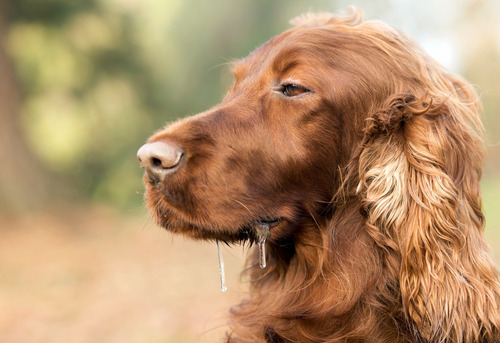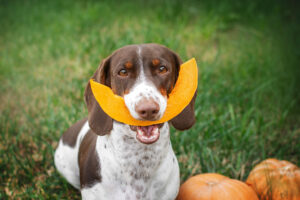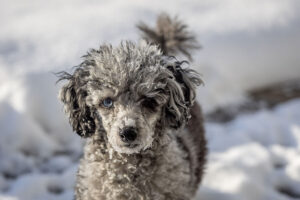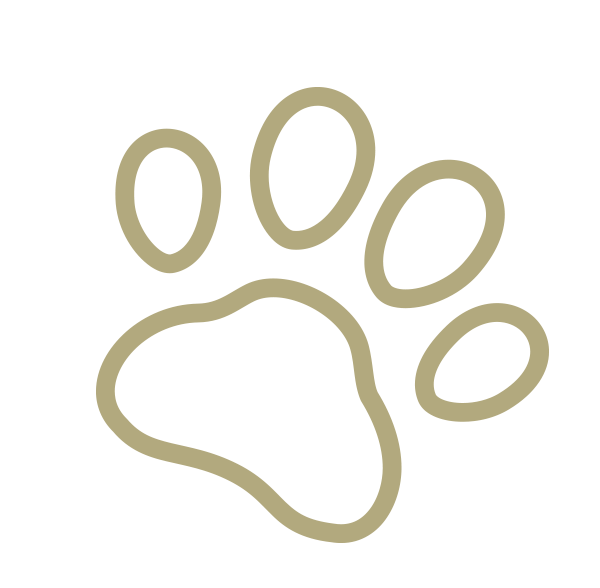When your dog drools a little while waiting for dinner or watching you snack, it’s usually no big deal. But what happens when the drooling doesn’t stop—or seems to come out of nowhere? Excessive or constant drooling isn’t just a quirky trait. It may be your dog’s way of signaling discomfort, stress, or an underlying health issue. In this blog, we’ll explore the many reasons a dog may start drooling constantly, how to recognize when it’s time to call your vet, and what to expect during an evaluation. If your dog’s drooling feels out of the ordinary, don’t wait—reach out to Harlingen Veterinary Clinic in Belle Mead at (908) 359-2000 or book an appointment online today.
What Causes a Dog to Start Drooling Constantly?
Dogs drool for a variety of reasons, and many are completely harmless. However, when drooling becomes constant or excessive, it can point to a more serious concern. Knowing what might be behind this change can help you decide your next steps.
Normal Triggers for Dog Drooling
Some dogs drool more than others, especially breeds like Saint Bernards, Bloodhounds, and Mastiffs. These dogs have looser lips and jowls that simply don’t hold saliva well. Drooling is also common when a dog is excited, anticipating food, or feeling anxious. Other harmless causes of increased drooling include:
- Exposure to new smells (especially food scents)
- Car rides, which may trigger motion sickness
- Temporary overheating or mild exertion
If your dog has always drooled a little, this may be part of their natural makeup. But if drooling starts suddenly or becomes heavy, that’s worth a closer look.
Medical Reasons Behind Excessive Drooling
A wide range of medical issues can lead to a dog drooling constantly. Some affect the mouth directly, while others involve internal systems or neurological responses. Common culprits include:
- Dental disease: Tartar buildup, infected gums, or broken teeth may cause mouth pain that leads to excessive saliva.
- Oral injuries or foreign objects: A stick, bone, or toy fragment lodged in the mouth can result in nonstop drooling.
- Nausea or gastrointestinal upset: If your dog feels nauseous, they may drool before or during vomiting episodes.
- Heatstroke or heat exhaustion: Overheating can lead to heavy panting and drooling, which may be followed by more severe symptoms.
- Toxins or irritants: Ingesting a toxic plant, household product, or even licking a treated lawn can trigger excessive salivation.
- Neurological issues: Seizures or other neurological disturbances can cause sudden, unexplained drooling.
If your dog is drooling constantly and also showing other symptoms—such as pawing at the mouth, refusing food, vomiting, or behaving oddly—it’s time to consult your veterinarian.
What to Watch for Beyond the Drool
While drooling may be the first thing you notice, keep an eye out for additional symptoms that may help your vet identify what’s going on. These signs often offer helpful context and can point toward specific conditions.
Signs of Oral Discomfort or Injury
Check your dog’s mouth (carefully) for red gums, swelling, loose teeth, or visible cuts. Dogs with mouth pain may resist having their mouths examined, drop food, or chew on one side only. A foul odor often accompanies dental disease.
Gastrointestinal Red Flags
Is your dog also vomiting, licking their lips repeatedly, or eating grass? These behaviors can indicate nausea. If your dog is drooling and having diarrhea or seems unusually lethargic, it may be a sign of digestive trouble—or something more serious like poisoning.
Behavioral or Neurological Changes
Changes in your dog’s coordination, confusion, trembling, or uncharacteristic behavior can be linked to neurological issues. A dog experiencing a seizure may drool excessively before or after the event. Document any changes you notice and share them with your veterinarian. The more detailed your observations, the easier it is for your vet to pinpoint the problem.
Diagnosing the Cause of Constant Dog Drooling
Once you’ve noticed excessive drooling and ruled out normal triggers, the next step is scheduling a veterinary visit. At Harlingen Veterinary Clinic, our team will perform a thorough physical exam and discuss your dog’s history in detail.
Physical Examination and Oral Evaluation
Your veterinarian will first inspect your dog’s mouth, gums, and teeth. They’ll check for dental problems, growths, or anything stuck in the mouth. If your dog is in pain or uncooperative, sedation may be recommended to ensure a safe and complete examination.
Diagnostic Testing
Depending on what’s found during the physical exam, your vet may recommend:
- Bloodwork to check for organ function or signs of infection
- Imaging such as dental X-rays or abdominal ultrasound
- Urinalysis or fecal testing if gastrointestinal symptoms are present
These tests help your vet determine if drooling is part of a larger issue, such as kidney disease, toxin ingestion, or oral tumors.
When Drooling Becomes a Veterinary Emergency
Not every case of dog drooling constantly is urgent, but some are. Recognizing emergency signs early can make all the difference.
Emergency Symptoms to Watch For
Call your vet or visit an emergency clinic right away if your dog is:
- Drooling and having difficulty breathing
- Weak, disoriented, or collapsing
- Drooling with severe vomiting or bloody diarrhea
- Seizing or showing signs of a neurological episode
- Suspected of ingesting a toxin (cleaners, human medications, certain plants)
In these cases, rapid treatment is critical. If you’re unsure whether it’s an emergency, call Harlingen Veterinary Clinic at (908) 359-2000 for guidance.
How You Can Support Your Dog at Home Between Vet Visits
While you should avoid home remedies or over-the-counter treatments without veterinary guidance, there are simple ways to monitor and support your dog between appointments.
Monitor for Changes and Keep Notes
Keep a log of when the drooling started, how often it occurs, and what else you notice. Include any changes to your dog’s eating habits, energy levels, or behavior. This information can be helpful during your appointment.
Create a Calm, Cool Environment
If your dog is panting heavily or drooling due to heat, bring them inside to a cooler area and offer water. Never delay veterinary care if you suspect heatstroke or poisoning.
Taking Action When Drooling Isn’t Normal
cOccasional drooling might just be part of who your dog is—but when drooling becomes constant or out of character, it’s time to look deeper. Many causes of excessive drooling can be addressed quickly when caught early, whether it’s a piece of debris stuck in the gums or the first sign of something more complex. Harlingen Veterinary Clinic is here to help you sort through the slobber and find answers you can trust. If your dog has started drooling constantly and you’re concerned, call us at (908) 359-2000 or book an appointment online today. We’re ready to evaluate your dog’s health and help you find peace of mind—one dry chin at a time.





